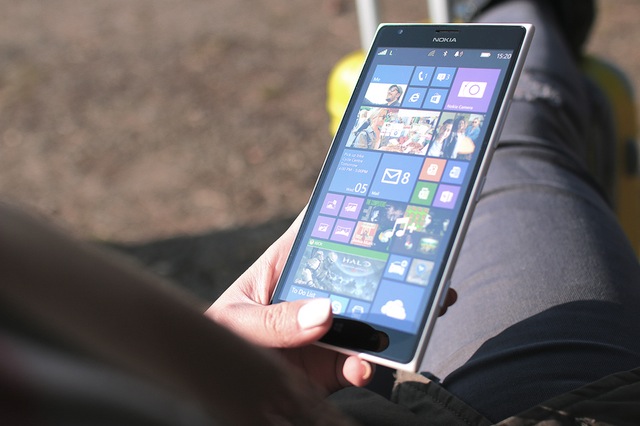
Market research firm Gartner presented hard data showing that Microsoft Corporation (NASDAQ:MSFT) Windows smartphones are fast becoming a minor player in the global smartphone market. The sales of Windows smartphones dropped 76% from 8.2 million in 2015 to less than 2 million in the second quarter of this year. The data backs up the figures released by Kantar on the mobile OS for the second quarter of 2016.
According to the agency, the global smartphone sales to end users totaled 344 million units in the second quarter of 2016. This represents a 4.3% increase over Q2 2015 and a 1.43% decrease over Q1 2016. As explained by research director Anshul Gupta, “Demand for premium smartphones slowed in the second quarter of 2016 as consumers wait for new hardware launches in the second half of the year. In addition, the decline in sales of “feature phones” (down 14 percent) bolstered the decline in overall sales of mobile phones in the second quarter of 2016.”
The research firm analyzed the worldwide smartphone sales of major operating systems. Android’s market share increased to 86.2% in Q2 2016 with over 296 million units sold. The performance of Android OS came from “demand for mid- to lower-end smartphones from emerging markets,” as well as “premium smartphones which recorded a 6.5 percent increase in the second quarter of 2016.”
On the other hand, Apple Inc. (NASDAQ:AAPL) iOS, which accounts for 12.9% of smartphone sales during the quarter, sold 44.3 million units. Meanwhile, Windows phone is far behind with a measly 0.6% OS share.
According to Microsoft’s fiscal year 2016 fourth quarter results, Microsoft did not disclose Lumia sales last month. However, there were reports that the Windows maker only sold 1.2 million during that quarter. When asked to explain the 0.7 million delta between Gartner figures and Microsoft estimated Lumia sales in Q2 2016, insiders said Gartner may have considered all Windows phone sales to end users, including the units sold from third party manufacturers while Redmond tech giant only reported sales into the channel.
According to Roberta Cozza, Gartner’s research director, Google (NASDAQ:GOOGL) and its Android partners are set to boost their domination over the smartphone industry because the mobile OS continues to evolve at a much faster pace compared to Microsoft’s Windows operating system.
“Google is evolving the Android platform fast, which allows Android players to remain at the cutting edge of smartphone technology,” Cozza said “Facing a highly commoditized smartphone market, Google’s focus is to further expand and diversify the Android platform with additional functionalities, like virtual reality, enabling more-intelligent experiences and reach into wearables, connected home devices, in-car entertainment and TV.”
In May 2016, Microsoft executives made it clear that the company “was not giving up on homegrown smartphones” despite acknowledging that they need to focus their efforts to improve Microsoft’s prospects in the smartphone segment.
“We are focusing our phone efforts where we have differentiation — with enterprises that value security, manageability and our Continuum capability, and consumers who value the same,” CEO Satya Nadella said in a statement.
- Bulenox: Get 45% to 91% OFF ... Use Discount Code: UNO
- Risk Our Money Not Yours | Get 50% to 90% OFF ... Use Discount Code: MMBVBKSM
Disclaimer: This page contains affiliate links. If you choose to make a purchase after clicking a link, we may receive a commission at no additional cost to you. Thank you for your support!



I really like the OS and due for a new phone but the current hardware is a dead end so im waiting to see what the surface phone brings. My wife and daughter couldn’t wait so they moved back to iPhones. Im optimistic MS can deliver, but will be joining the iPhone ranks if not.
I’ve had windows based phones for over a decade. They called them PDA’s, but since 2004 I’ve had internet, emails and everything I need without issues. In fact, they have only just caught up with themselves because my 2008 imate used to connect to my monitor and become a mini pc. They chased the iPhone and that was a mistake. I preferred it when I had a basic xp system and wasn’t constrained.
Apps are just a gimmick for revenues. It took less clicks to open a program than it does now. The iPhone did what it did because they couldn’t scale down an operating system and wanted money making schemes.
Poorly written. When presenting data, language matters. “The sales of Windows smartphones dropped 76% from 8.2 million in 2015 to less than 2 million in the second quarter of this year.” 2mm in a quarter annualized is about 8mm. I don’t know what the correct numbers are (which is sad since I just read your article). Maybe if you’re going to spend time reporting on something, you should also spend the time to present it accurately.